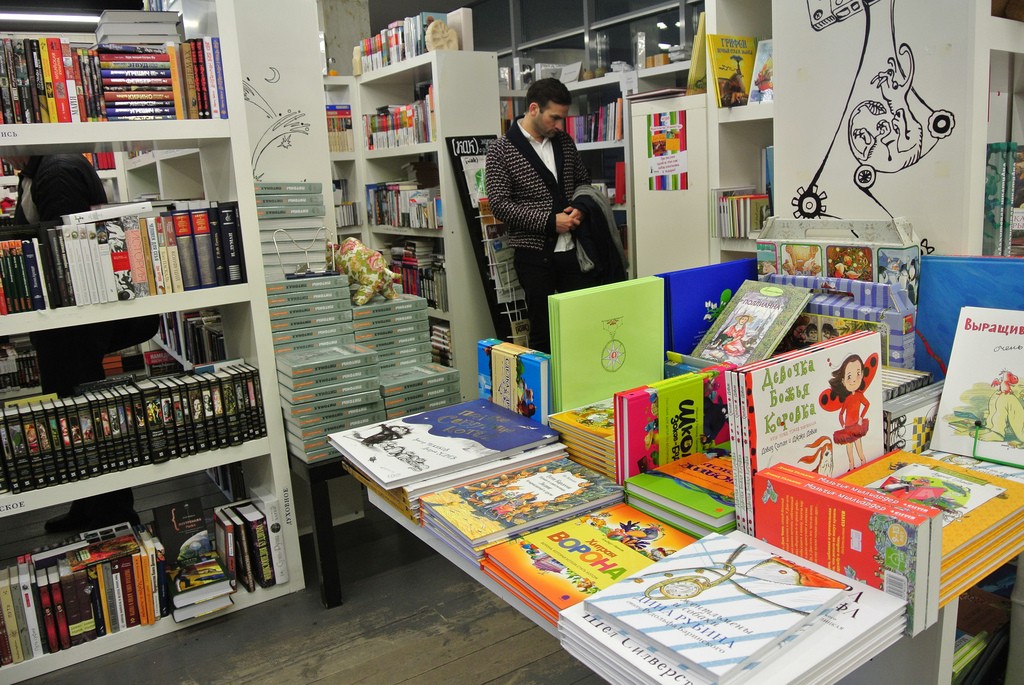Moscow is considered to be the most well read city in Russia, but bookstores have been closing anyways. There are now 226 bookshops left to serve a population of 12 million, said Boris Kupriyanov, a publisher and co-founder of Falanster bookshop. In Paris, whose population is five times smaller, there are 700 bookshops, he added.
The number of bookstores are significantly declining in Russia primarily to high rent. In the Soviet era, bookshops were freed from paying rent and even received some subsidies to pay utilities bills. Rent is at record levels and the state taxes for bookshops is the same as liquor stores. This is compounded by a new law that just passed this July called the “trading fee”, a fixed quarterly payment that stores must pay to legally sell goods.
High rent is one thing, but the average Russian is simply not reading anymore. In 2014 more than half of Russians didn’t read a single book, up from one-quarter in 2009, Sergei Stepashin, president of the Russian Book Union told news agency TASS this month.
Young people see books as pure entertainment, and in that category they cannot compete with modern gadgets, said Kupriyanov. Without measures by the state to stimulate interest in reading and promote books as a source of education, interest will continue to wane, he said.
With bookstores closing due to high rents and a lack of demand from your average reader, this is putting pressure on the publishing industry. Last year, the number of book and brochure titles published in Russia was the lowest in seven years, according to a report issued by the Federal Press and Mass Media Agency. With the number of titles falling, the size of print runs is also declining, and the total amount of printed material shrank by 10.4 percent last year compared to 2013, according to the report. More than half of books published in Russia now have a circulation of less than 1,000 copies.
In the US, thousands of published authors and self-publishers derive their primary income from writing books. In Russia there are currently 10-12 people in the whole country that can earn their living only by writing books, and there will be even fewer of them in the future.
Michael Kozlowski is the editor-in-chief at Good e-Reader and has written about audiobooks and e-readers for the past fifteen years. Newspapers and websites such as the CBC, CNET, Engadget, Huffington Post and the New York Times have picked up his articles. He Lives in Vancouver, British Columbia, Canada.

